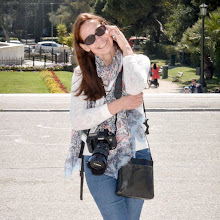From now until the 4th of September, FOAM, Fotografiemuseum Amsterdam, presents a major exhibition of the work of Helmut Newton (Berlin, 1920 - West Hollywood, 2004), a legendary, supremely influential photographer. Taking over the entire building on Amsterdam’s Keizersgracht, the retrospective features in excess of 200 photographs, ranging from early prints that rarely go on display to monumental photos.
The name Helmut Newton immediately conjures up images for many a photography enthusiast, namely those of long-legged, high-heeled – and usually scantily clad – women, who radiate an unbridled sense of eroticism.
It’s certainly true that women play a central, erotic role in Newton’s work. But this is also the reason why his work is often all too quickly and simply pigeon-holed, and why there’s insufficient appreciation of the intrinsic complexity and multi-layered nature of his oeuvre.
Newton took up his camera in the 1950s, but his breakthrough didn’t come until the 1970s, primarily with the striking photographs he produced on commission for French Vogue.
The 1970s and early 1980s were characterised by social change. Traditional power relations shifted and it was a period of fervent female emancipation and looser sexual morality. This is all directly represented in Newton’s photography.
And it was no accident that Newton was closely acquainted with Yves Saint Laurent and Karl Lagerfeld, fashion designers that played with male-female relations and strived for a new, contemporary female image.
Works are shown by genre in the colour-coded rooms. I recommend this exhibition to every photographer, fashion and art lover! His diversity is a joy for the eye.
The exhibition is organised in close collaboration with the Helmut Newton Foundation in Berlin and until the 4th of September at FOAM in Amsterdam.
Text source: FOAM
 |
| Yves Saint Laurent, French Vogue, Rue Aubriot, Paris 1975 © Helmut Newton Estate / Maconochie Photography |
Newton is responsible for a rich, authentic and complex oeuvre that can be considered one of the most iconic of the last quarter of the 20th century. The majority of the works featured in the exhibition are vintage prints from the collection of the Helmut Newton Foundation in Berlin.
Helmut by June, the film made by Newton’s wife June in 1995, will also be screened.The name Helmut Newton immediately conjures up images for many a photography enthusiast, namely those of long-legged, high-heeled – and usually scantily clad – women, who radiate an unbridled sense of eroticism.
It’s certainly true that women play a central, erotic role in Newton’s work. But this is also the reason why his work is often all too quickly and simply pigeon-holed, and why there’s insufficient appreciation of the intrinsic complexity and multi-layered nature of his oeuvre.
Newton took up his camera in the 1950s, but his breakthrough didn’t come until the 1970s, primarily with the striking photographs he produced on commission for French Vogue.
The 1970s and early 1980s were characterised by social change. Traditional power relations shifted and it was a period of fervent female emancipation and looser sexual morality. This is all directly represented in Newton’s photography.
And it was no accident that Newton was closely acquainted with Yves Saint Laurent and Karl Lagerfeld, fashion designers that played with male-female relations and strived for a new, contemporary female image.
Works are shown by genre in the colour-coded rooms. I recommend this exhibition to every photographer, fashion and art lover! His diversity is a joy for the eye.
Text source: FOAM
Helmut Newton - a retrospective
 Reviewed by Patricia Munster
on
1:55:00 AM
Rating:
Reviewed by Patricia Munster
on
1:55:00 AM
Rating:
 Reviewed by Patricia Munster
on
1:55:00 AM
Rating:
Reviewed by Patricia Munster
on
1:55:00 AM
Rating:









.jpg)













No comments: